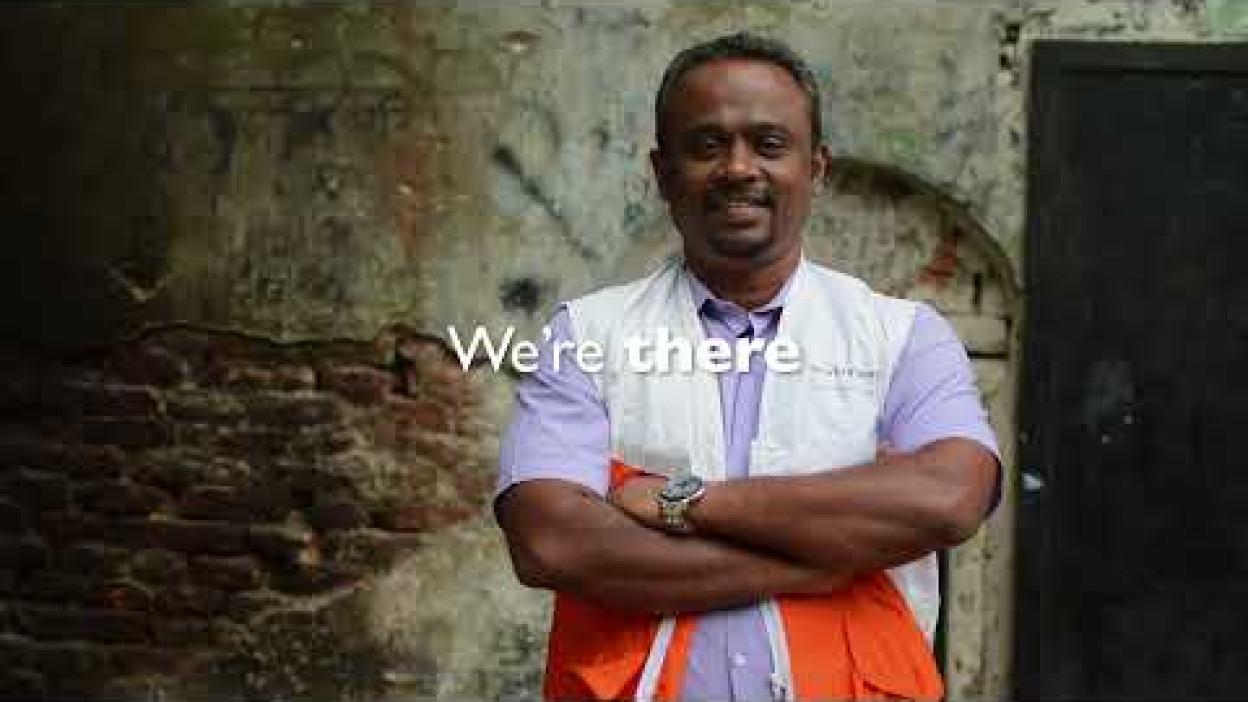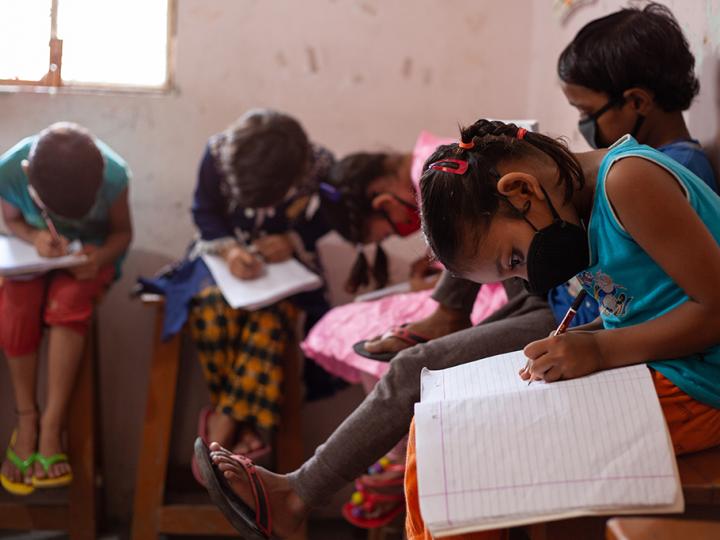
COVID-19 Response
Across the globe, World Vision teams are working to limit the spread of COVID-19 and reduce its impact on communities already dealing with things like poverty and conflict. We've already exceeded our initial goal of reaching 72 million people, and we continue to implement programmes to help the most vulnerable children and their families.
Coronavirus Health Crisis
A global pandemic requires a global response. At World Vision, we are united across every operational area, programme, and office.
For the past 70 years, when disaster strikes, we are on the ground, quickly providing immediate support: COVID-19 is no different.
We are responding in every country where we work in one form or another. Our global COVID-19 Response, has already exceeded our initial goal to provide targeted support to least 72 million vulnerable, and we're continuing to focus on families facing pre-existing vulnerability and fragility, where children are most at risk - conflict affected contexts, urban slums, and refugee settings.
The devastating aftershocks of the crisis are putting at least 30 million children’s lives at risk while 85 million children are more likely to experience violence. We urgently need to address both the direct health impacts of the virus and the indirect impacts brought about by viral containment measures and fall-out from the pandemic.
In every country and community where we work, we are committed to both limiting the spread of COVID-19 and also reducing its impact (physical, emotional, and economical) on vulnerable children their families by:
Our Priorities
81,439,346 people reached by field programmes
See how our efforts are helping us:
Limit the spread of COVID-19. Strengthen health systems and workers. Support children affected by COVID-19. Ensure the most vulnerable children are protected.
Stand with us as we stand by the "COVID-19 generation"
World Vision Responds
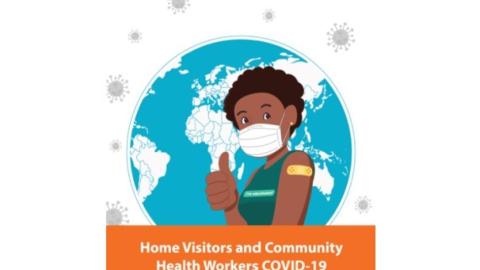
Supporting community partners to share about COVID-19 vaccines
Vaccines have demonstrated incredible effectiveness at preventing serious COVID-19 disease and death. This resource is designed to empower Community Health Workers and home visitors working directly with communities to communicate about COVID-19 vaccines clearly and with confidence. This has also been newly released in Ukrainian, to support frontline workers facing crisis amidst COVID-19.
Partnering to support faith actors in vaccine roll-outs
Reverend Christo Greyling, Senior Director for Church Partnerships, was a panellist on a joint webinar hosted by the WHO, UNICEF, and Religions for Peace, jointly discussing the impact of faith actors at global and national levels and their need to be involved in advocacy for vaccine equity and access during vaccine roll-outs

Much-needed PPE for Navajo Nation frontline workers
The Navajo Nation spreads across 27,400 square miles in New Mexico, Arizona, and Utah, in the United States, with much of the sparse population scattered in isolated pockets. Many lack electricity or internet access, which makes it difficult to get the latest coronavirus updates. World Vision is supporting the Navajo Nation with much needed personal protective equipment (PPE) as well as coronavirus prevention messaging, hygiene kits, and food boxes to combat the rising food insecurity.
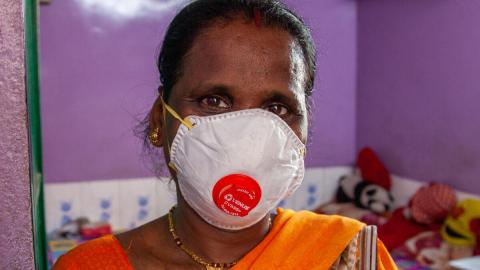
Helping families hit by by India's devastating second wave of COVID-19
As the country fights the second wave of COVID-19, World Vision India is immediately supporting 93 hospitals with oxygen concentrators and upgrading the facilities with needed cots, beds and medical equipment, strengthening public health systems.

Hygiene kits and child protection in Bolivia
World Vision is delivering hygiene kits and prevention instructions to 40,000 children and young people and their families to counteract the impact of COVID-19 in Bolivia while working collaboratively with local government and ministries to implement measures to prevent and protect children from violence and provide psychosocial support to boys, girls, their caregivers, and the communities.
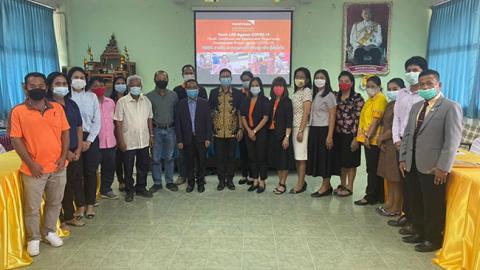
Empowering young people in Thailand with livelihoods training
World Vision Thailand is working with its partner, HSBC, to combat the economic aftershocks of COVID-19 affecting young people's livelihoods by empowering young people with professional and vocational skills, such as mechanics, electrical appliance repair, occupational electronics, beautician, makeup artist, hairdresser, hospitality, handicrafts, and more.
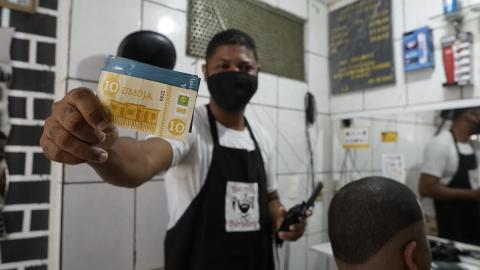
Supporting solidarity finances and local commerce in Brazil
The financial crisis triggered by the COVID-19 pandemic plunged 119 to 124 million people into poverty in 2020 and poverty induced by COVID-19 could rise between 143 and 163 million, according to World Bank estimates. In Brazil, the unemployment rose to a record 13.5% due to the pandemic, according to the IBGE (Brazilian Institute of Geography and Statistics). In an attempt to alleviate this situation and ensure that the most vulnerable families have an alternative to sustain themselves during the crisis, World Vision Brazil gave 41 micro and small entrepreneurs and parents of small children emergency cash transfers, through a partnership with Community Bank Santa Luzia, to encourage neighbourhood trade in Salvador, Brazil.

Providing radios to ensure children can continue learning in Colombia
In partnership with Education Cannot Wait, Ana is receiving a radio from World Vision so she can receive lessons at home while schools are closed due to COVID-19.

Distributing study guides in Honduras
World Vision is providing education assistance to girls and boys who do not have access to the Internet so they continue their studies and not be left behind.

Providing psychosocial support in Brazil
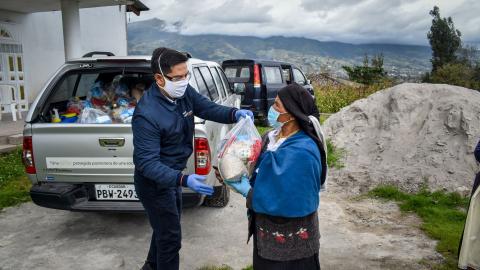
Distributing food kits in Ecuador
We're providing food kits to the most vulnerable families in Otavalo, Ecuador, many of whom are unable to work and have lost their regular incomes due to the lockdown in the community. The food kits include tuna, cooking oil, rice, sanitary towels, dried lentils, salt, sugar, and other essential items.
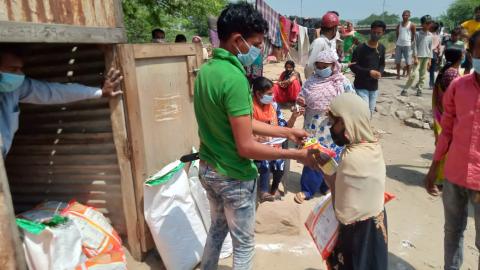
Distributing meals to families in India
For many children, COVID-19 has made their families’ existence more precarious, and when they aren’t eating well, children are at an increased risk of malnutrition. World Vision has responded to this threat. As of May 2020, we have provided over 200,000 cooked food packages for families in Delhi, India, and we are supporting over 18,000 households with dry rations.
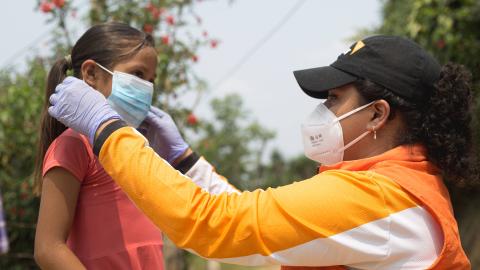
Staff takes care of children in Honduras
While food rations, agricultural packages and hygiene kits are delivered in Honduras, World Vision staff also gives care and attention to children, providing face masks and encouragement during the COVID19 pandemic.
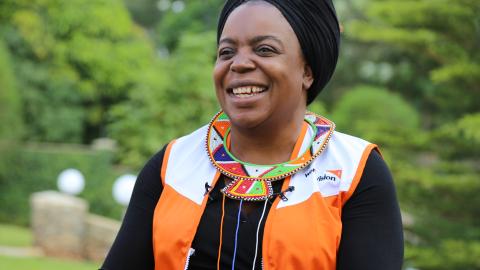
Keeping Hope Alive Amidst COVID-19 in Kenya
Keeping hope alive in Kenya entails: protecting oneself and others from getting the disease, tackling the spread of rumours, staying informed about current trends or progress in the COVID-19 fight, and maintaining healthy relationships during social distancing.

Providing for communities through seed distribution during COVID-19 food insecurity
“The seeds distributed are part of World Vision’s initiative in Tana River County to improve food access for families and reduce malnutrition in children by increasing and improving agricultural productivity and food security,” said Emmanuel Mkoba, the World Vision Area Programme Manager for Lamu and Tana River cluster in Kenya.

Providing nutritional support for vulnerable families in Philippines
While our staff work to limit the spread of COVID-19, we are equally concerned about the secondary impacts the virus can and is having on vulnerable families, many of whom live day-to-day. Our report, looking at the secondary impacts of COVID-19 found that as many as 5 million children are at increased risk of malnutrition. To help combat that threat, our team in Philippines 3.8 tonnes of vegetable to support the nutritional needs of vulnerable children and their families.

Helping keep children healthy and continue learning in Brazil
World Vision teams in Brazil partnered with churches to pack and distribute 1,000 tenderness boxes to vulnerable children. The boxes included school materials to help children continue their learning while at home, food to guard against malnutrition as well as hygiene materials (soap and hand sanitizer) and information on what children and their families can do to protect themselves from the virus.

Distributing food to vulnerable Venezuelan migrants and their families
Although we are responding in every country we work in in one form or another, our global COVID-19 emergency response focuses on situations of pre-existing vulnerability and fragility. One group of particular concern are migrants who often live day-to-day like Keyber, 20, and Valentina, 18. Keyber is unable to work during the quarantine and worries about how he will provide for his wife who is 7 months pregnant.
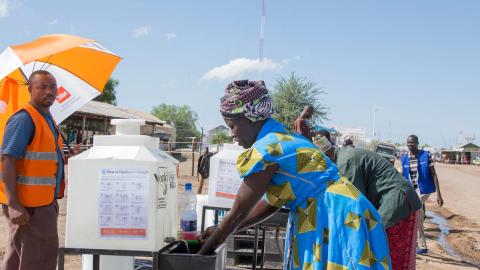
Preventing COVID-19 while continuing life-sustaining work in Kenya
Around the world, we are working to limit the spread of COVID-19 while also protecting vulnerable populations from the secondary affects, such as increased malnutrition. In Kenya, our dedicated staff members have altered processes to include handwashing stations and social distancing measures in order to continue to provide life-sustaining food through distributions to refugees.
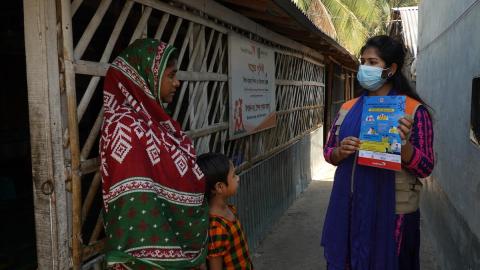
Helping communities understand what the coronavirus is and how they can protect themselves
Mili, 28, a trained World Vision staff member, goes door-to-door (to avoid large gatherings) educating families about the coronavirus and how they can protect themselves.

Providing public handwashing stations in Indonesia
In Indonesia, World Vision teams are installing public hand-washing stations with instructions on proper hand-washing proceedures in public areas. Handwashing is one of the main ways individuals and communities can protect themselves but in many communities regular access to facilities is challenging.
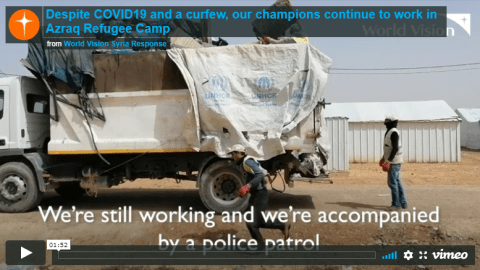
Providing Sanitation in Jordan amid COVID-19 Lockdown
In response to the Coronavirus outbreak, the Jordanian government imposed a curfew four days ago across the country preceded by a lockdown on most movements.
Our champions went above and beyond and stayed inside Azraq Refugee Camp to continue collecting solid waste as part of World Vision's Solid Waste Management project.

Preventing COVID-19 in South Sudan
Sebit James, World Vision’s Child protection social worker in South Sudan, guides children at one of the child friendly spaces on how to wash their hands properly to avoid diseases, including COVID-19.
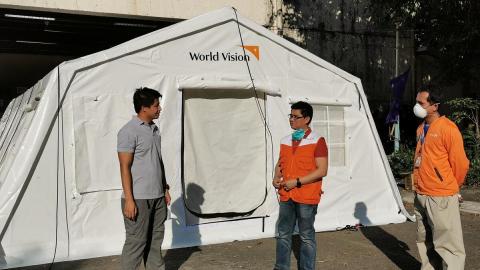
World Vision donates tents to hospitals in the Philippines
To support government efforts and protect health workers and other vulnerable populations, World Vision provided three tents to one of the COVID-19 referral hospitals, identified by the government. According. The tents will be used as an extension of the emergency room and triage areas where individuals with suspected cases of the coronavirus will be tested before entering the hospital setting, helping to protect patients with other sicknesses and also frontline medical staff.
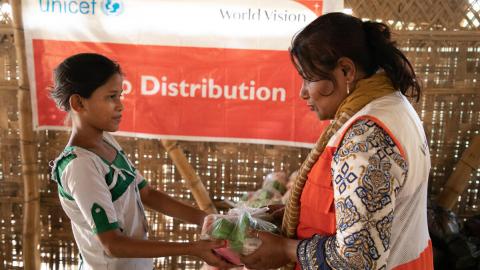
Protecting refugees from the coronavirus (COVID-19) by distributing soap
Nurankis, 11, understands the danger the coronavirus could bring to her or her family. “People can die if infected by the Corona virus. I need to avoid dirty places, crowds and going outside unnecessarily,” she said. For this reason, she happily receives soap for her family from World Vision.
In partnership with UNICEF, World Vision staff are distributing 10 pieces of bathing soap and 5 pieces of laundry soap per family per month so that they can properly wash their hands to protect themselves.
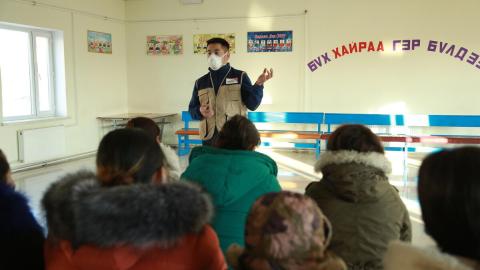
In Mongolia, World Vision staff members equip parents to protect their families
World Vision staff member educates parents of sponsored children about the coronavirus (COVID-19) and helps them understand steps they can take to protect themselves and their families from contracting the virus.
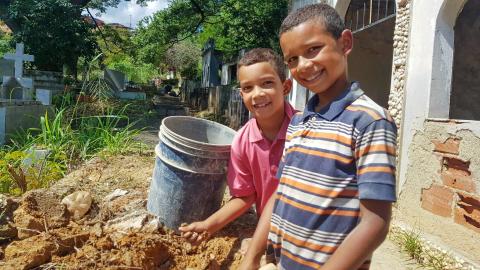
Hitting 'Send' on digital emergency aid during COVID-19
Calling the shots
In the last two years, we've exceeded our initial aim of reaching 72 million people. We've surpassed our goal of raising US$350 million, and prioritised the world's most vulnerable children and their families as they've faced COVID-19. But we're not done yet. Hundred of millions of children have been made much more vulnerable by the pandemic’s indirect impacts. We're continuing to respond to COVID-19 itself and the challenges that have come with it.
Related Resources
The power of mothers promoting the COVID-19 vaccine
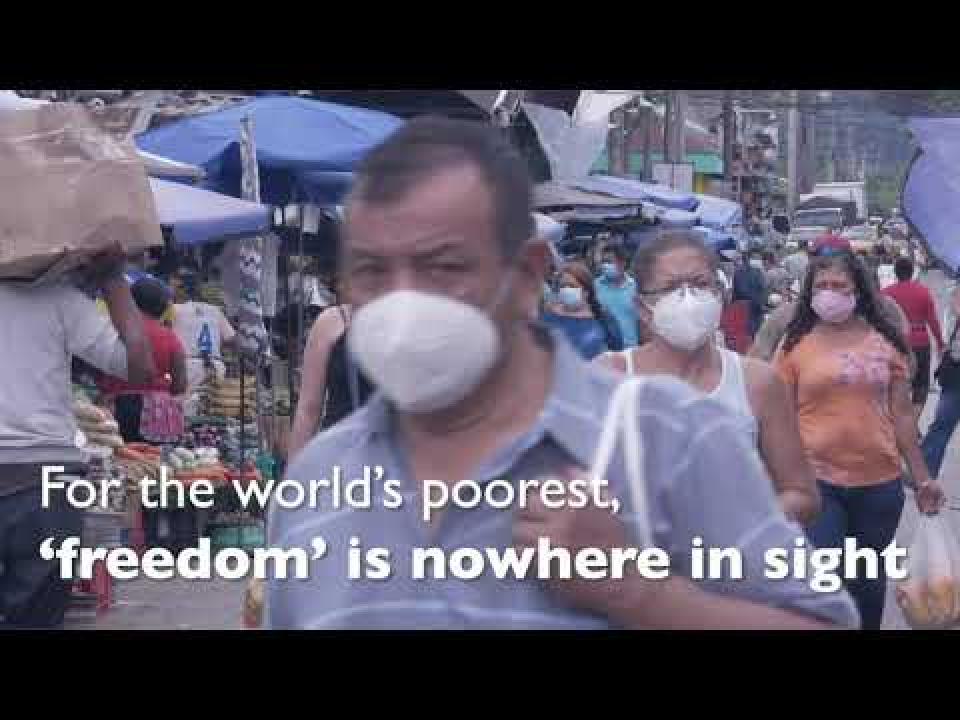
COVID-19 vaccination – still far from a celebratory moment
Related Publications
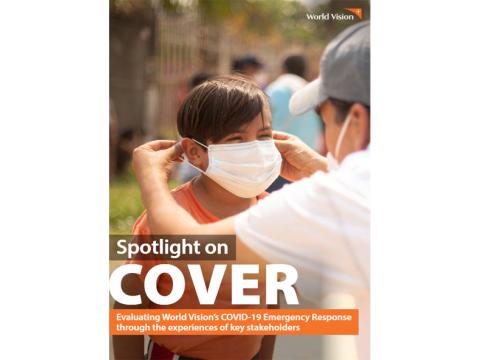
COVID-19: thousands feedback on our global response
Read more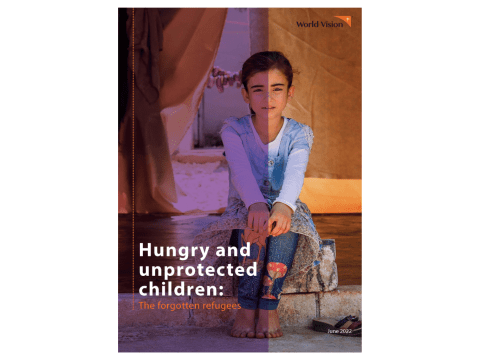
Hungry and unprotected children: The forgotten refugees
Read more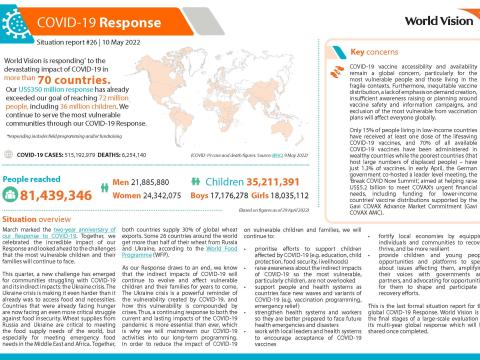
COVID-19 Response Update May 2022
Read more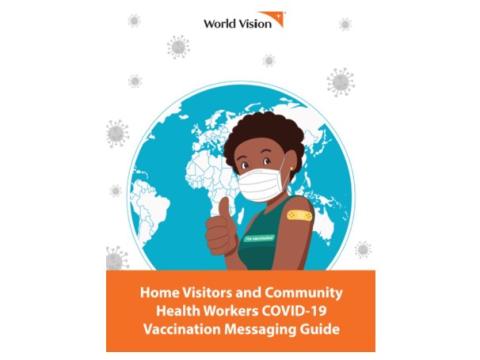
Посібник із повідомленнями про вакцинацію від COVID-19 для відвідувачів житлових будинків і медико-санітарних працівників громад
Read morePress Releases

World leaders must prioritise immediate global vaccination roll-out to avoid further COVID-19 mutant strains
Read more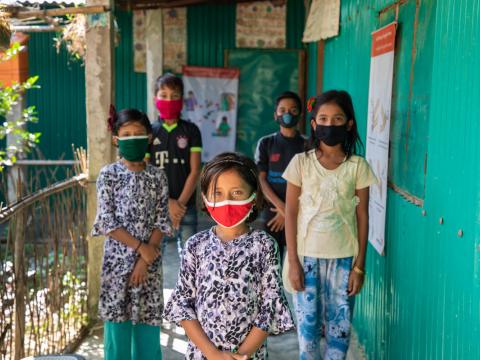
COVID-19 inflicts fear and thoughts of not wanting to live in vulnerable children
Read more
Global & K-pop Artists Unite to support children affected by COVID-19 pandemic
Read more
Deadly Waves: Multiple waves of COVID-19 threatens millions of lives if leaders fail to prioritise vulnerable people
As many countries begin to ease lockdowns and reopen their economies and schools, they face potentially new waves of COVID-19 if effective steps are not taken to tackle the disease everywhere. This report looks at the findings of surveys, historical trends of pandemics and what a second wave of COVID-19 may look like as well as providing recommendations to prevent or mitigate additional waves.






